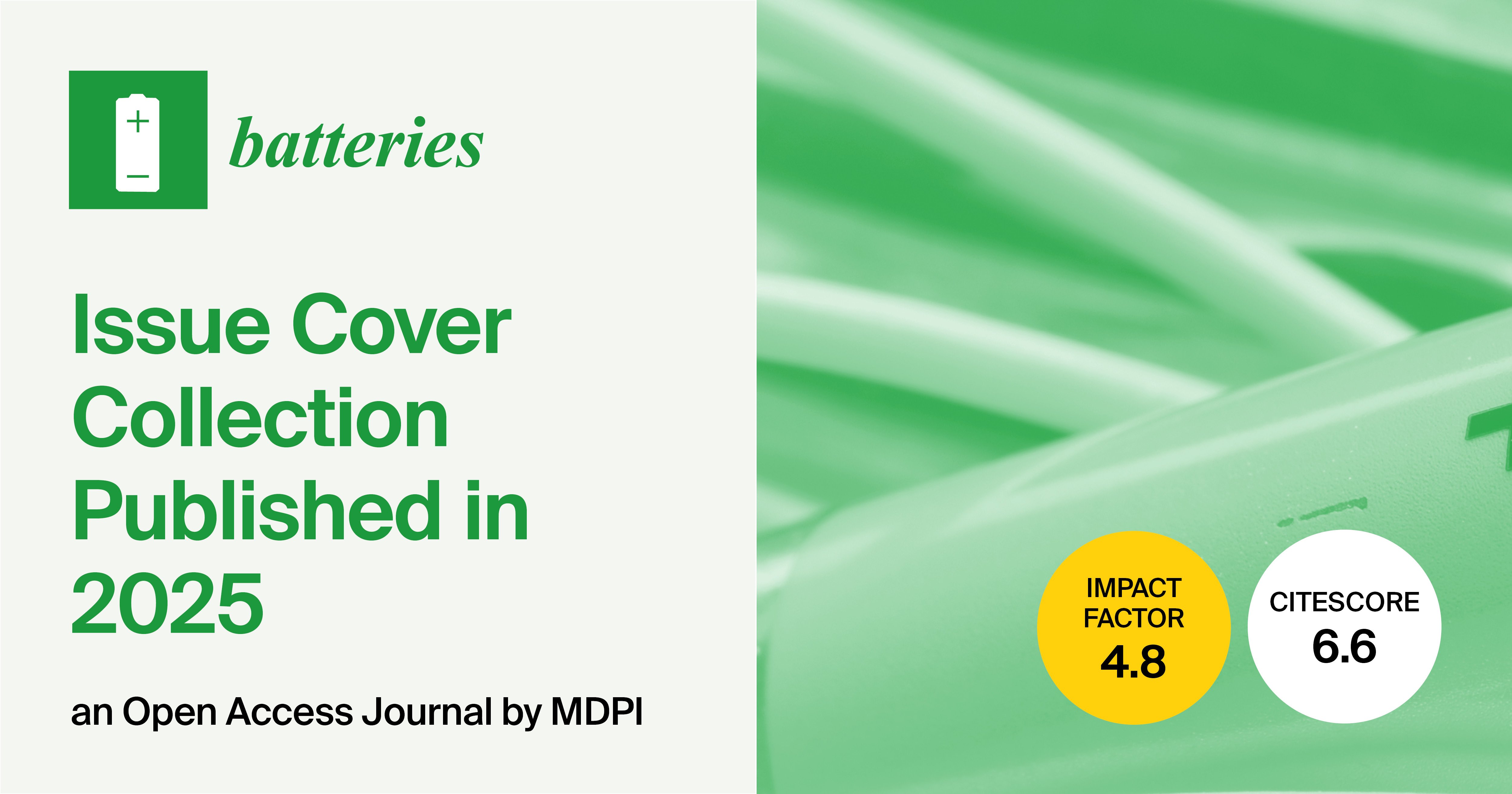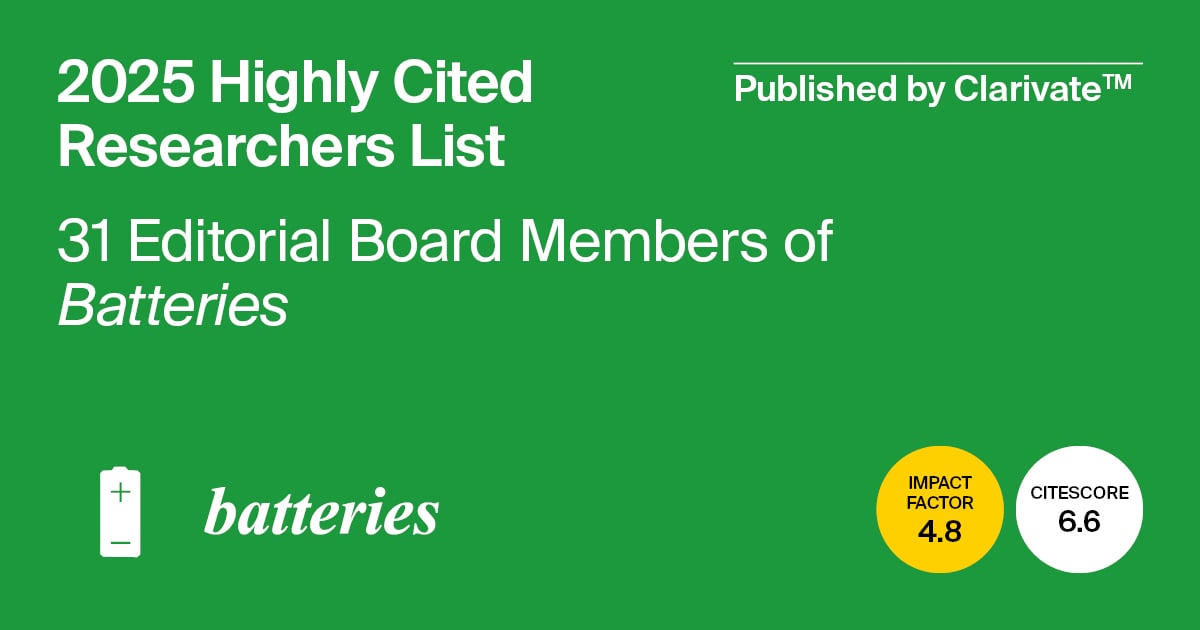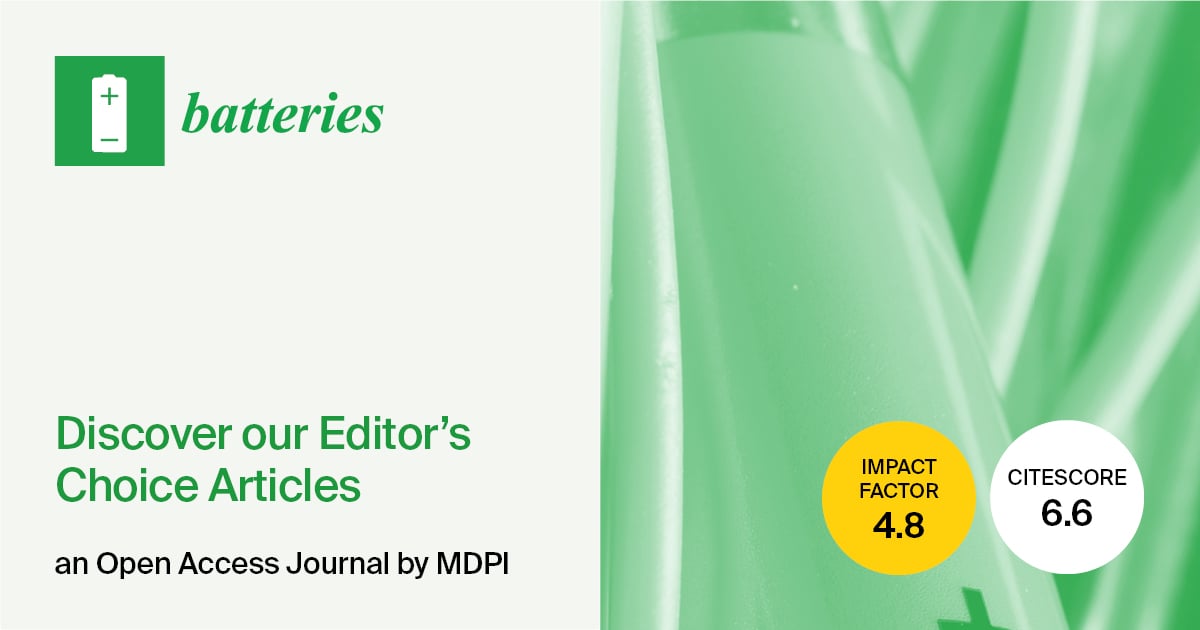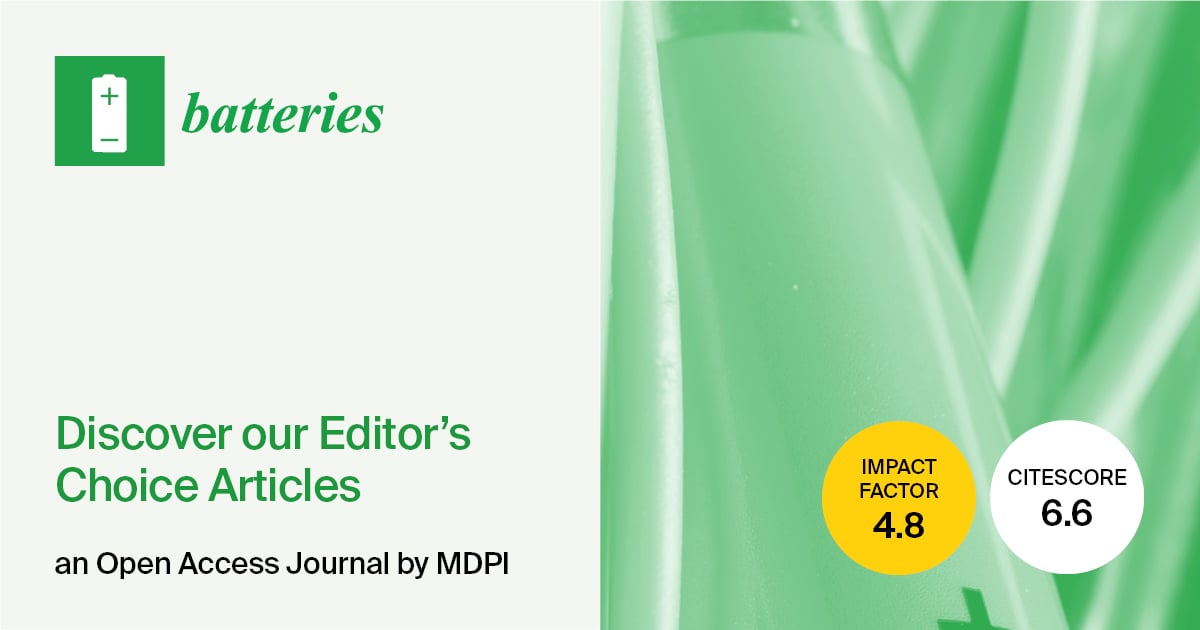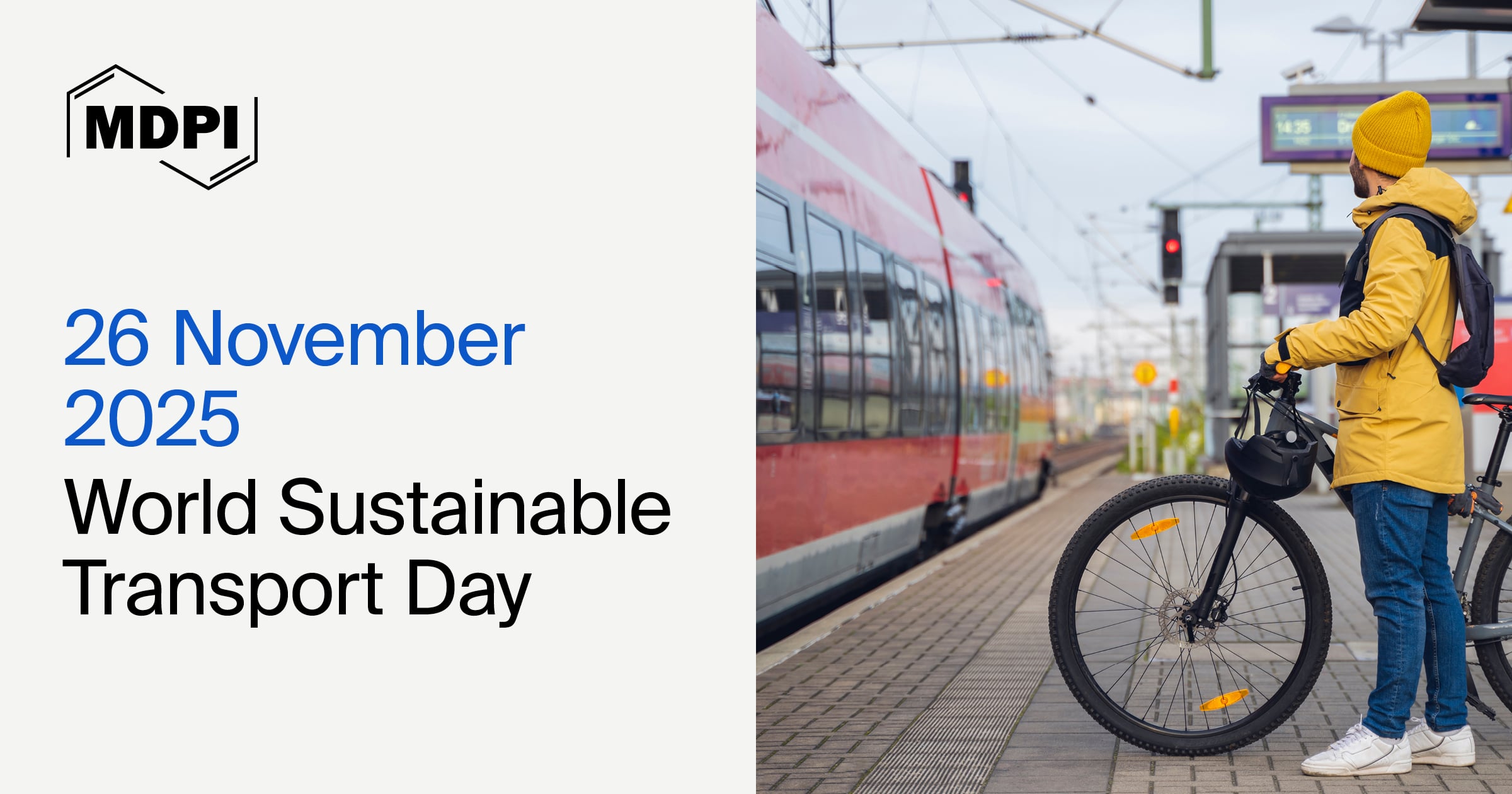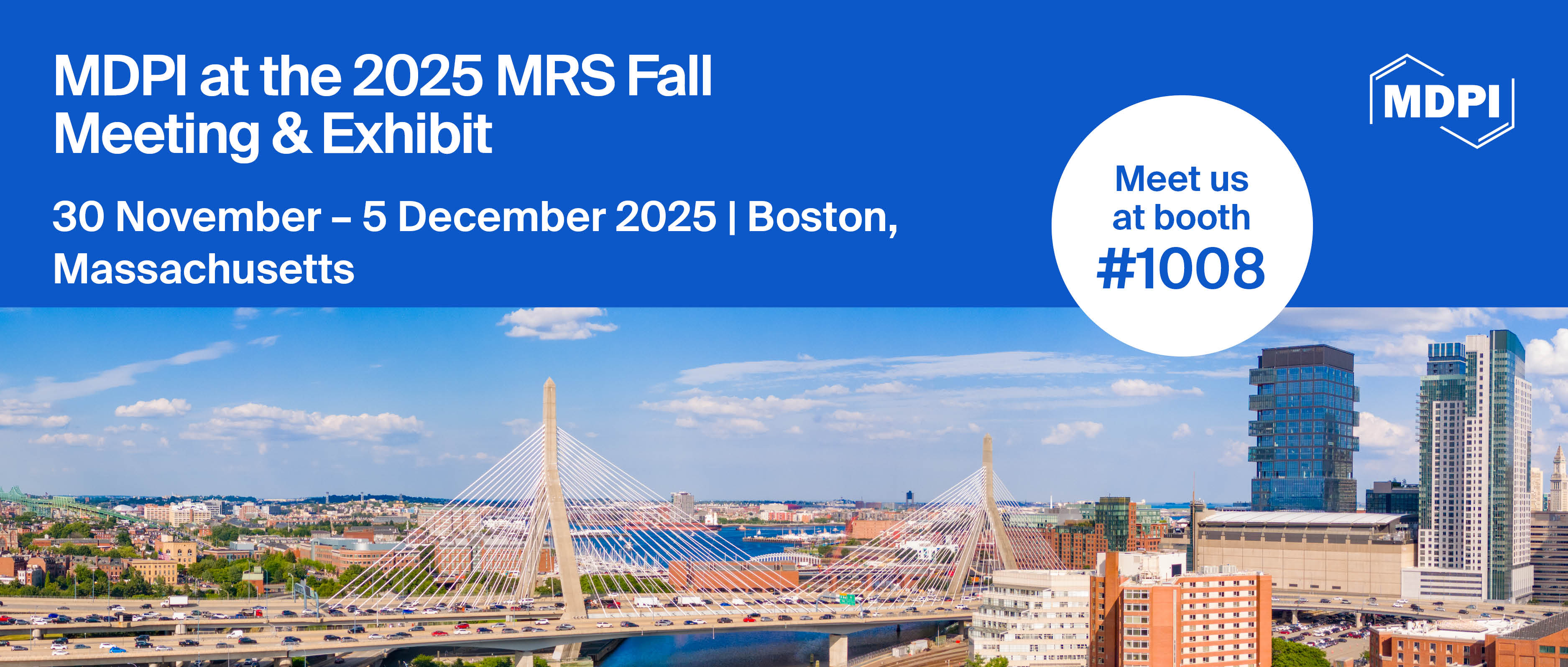- 4.8Impact Factor
- 6.6CiteScore
- 20 daysTime to First Decision
News & Conferences
Latest News & Announcements
Latest Conferences
Propose a Conference Collaboration
Promote and publicise your upcoming conference with MDPI.
All News & Conferences
News & Announcements
MDPI’s Newly Launched Journals in December 2025
9 January 2026
News & Announcements
Batteries | Issue Cover Collection Published in 2025
7 January 2026
News & Announcements
“Energy Materials and Battery Technology” Workshop Summary
5 January 2026
News & Announcements
Editorial Board Members from Batteries Featured in the Highly Cited Researchers 2025 List Published by Clarivate
24 December 2025
News & Announcements
Article Layout and Template Revised for Future Volumes
11 December 2025
News & Announcements
Batteries | Invitation to Explore the Editor’s Choice Articles (Issues 7–9, 2025)
9 December 2025
News & Announcements
Batteries | Invitation to Explore the Editor’s Choice Articles (Issues 10–12, 2024)
3 December 2025
News & Announcements
World Sustainable Transport Day, 26 November 2025
26 November 2025
News & Announcements
Meet Us at the 2025 MRS Fall Meeting and Exhibit, 30 November–5 December 2025, Boston, Massachusetts, USA
26 November 2025
News & Announcements
MDPI Launches the Michele Parrinello Award for Pioneering Contributions in Computational Physical Science
6 November 2025
News & Announcements
MDPI INSIGHTS: The CEO's Letter #28 - WSF11, Nobel Laureates, Proofig AI, Romania Summit, STM and FBF
4 November 2025
of 20



